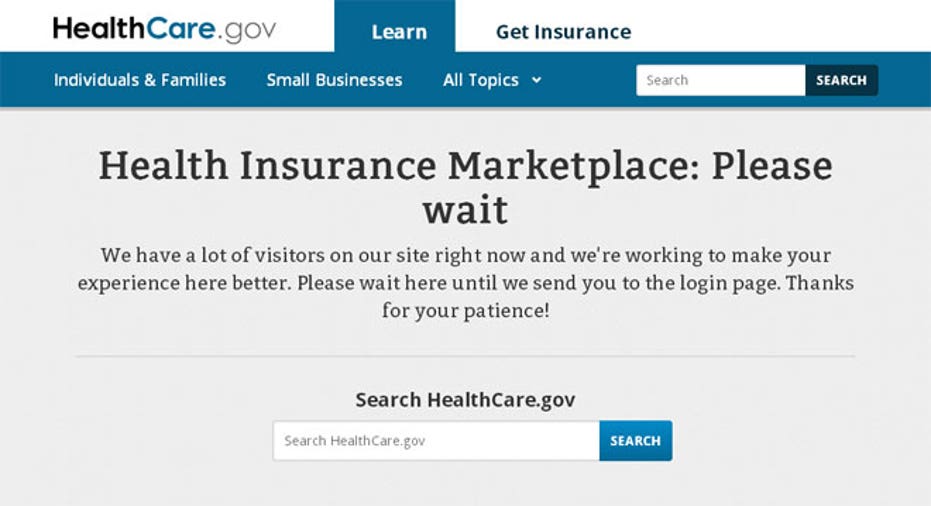Latest ObamaCare Extension: Impact on Consumers, Insurers

There’s a new reprieve for those struggling to sign up for health insurance on the federal exchange by Monday’s deadline.
The Obama Administration is expected to announce Wednesday another extension for Americans having difficulty signing up for coverage on Healthcare.gov.
Those using the federal exchange and running into issues will be able to file an extension with HHS through mid-April to have their enrollment window extended. The Washington Post was the first to report that users would be allowed to check a box on the exchange site that indicates they have attempted to enroll before the March 31 deadline. The newspaper also reported the government will not attempt to verify a person’s claims of making a good faith effort to enroll.
HHS maintains the move is not a “delay” but rather an extension as demand on the exchange has picked up.
“Open enrollment ends March 31. We are experiencing a surge in demand and are making sure that we will be ready to help consumers who may be in line by the deadline to complete enrollment—either online or over the phone,” Joanne Peters, HHS spokesperson, said in an email statement.
The Affordable Care Act mandates that every individual in the country have insurance by the end of open enrollment period on March 31, or they will face a fine of $95 a year or 1% of their annual income for failing to comply. So far, 5 million Americans have selected plans on both state and federal exchanges, however HHS has yet to report how many of these individuals have paid their first months’ premiums.
The insurance industry typically considers a person enrolled when he or she has paid their first months’ premium, but insurance industry insiders say that as many as 20% of these enrollees have yet to make that first month’s payment.
The move by the Obama Administration is similar to the extension it granted in December for having insurance kick in on Jan. 1. The original enrollment date to have coverage start in the new year was Dec. 23, which was then moved to Dec. 31 to the dismay of the insurance industry.
The insurance industry is looking for more guidance on a precise date that ends open enrollment, according to Clare Krusing, spokesperson for America’s Health Insurance Plans, which represents nearly 90% of insurers.
"It's important to make sure that people who tried to sign up for coverage are able to get coverage. Health plans have and are doing everything they can to help consumers through the enrollment process. The new special open enrollment period needs to be limited to a defined period of time with a clear end date. This helps to ensure there is an incentive for people to enroll. It is also necessary so health plans know who is covered as they develop and submit premiums for next year, which is required in some states as early as April,” Krusing said in an email message.
But Vishnu Lekraj, senior insurance analyst at Morningstar, says the extension could be a “mild positive” for the insurance industry that has been hit with previous delays and extensions, allowing time to play catch up.
“It could avoid some adverse selection issues and get younger people in the mix,” Lekraj says. “As long as you grow that market, it becomes less risky.”
The administration has been challenged in getting young and healthy enrollees to sign up for coverage so far. The latest demographic breakdown shows 25% of the 4.2 million enrolled as of early March being between the ages of 18 and 34. This is a far cry from the 2.7 million young and healthy enrollees the White House originally projected for year one of the ACA.
Lekraj says the thinking is that the older and sicker likely rushed to enroll in care early on because they needed it most; the extension will give younger people who may have run into trouble more time to complete the process.
Devon Herrick, senior analyst at the National Center for Policy Analysis, agrees that more younger people may enroll with the extension, but says it undermines the urgency of having an enrollment period.
“Open enrollment was supposed to last no longer than six months, and it’s meant to be a window to tell people ‘here is the limited time you have to go and sign up,’” Herrick says. “If you know you can wait, by having another delay, maybe you can just see how you feel in three more months. You are scooping up people who purposely waited to sign up in hopes they wouldn’t need to.”



















